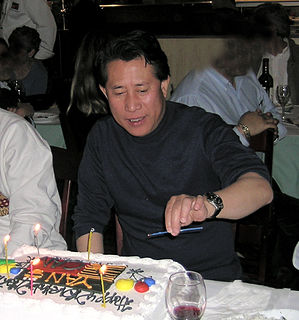A Quote by Ang Lee
These days I'm mostly familiar with two parts of L.A.: one is movie culture, and the other is Asian culture. The Westside is work, and the Eastside is Chinese - which means my friends.
Related Quotes
At the beginning of my career as a writer, I felt I knew nothing of Chinese culture. I was writing about emotional confusion with my mother related to our different beliefs. Hers was based in family history, which I didn't know anything about. I always felt hesitant in talking about Chinese culture and American culture.
"Culture" is a new phenomenon, I believe. Culture is the new religion. People treat you based upon your culture. You are pushed to describe yourself by your culture: Kurdish or Turkish? Left wing or right wing? Progressive or conservative? Westerner or Easterner? European or Asian? So we have a label ready for you.
In Scotland over many years we have cultivated through our justice system what I hope can be described as a 'culture of compassion.' On the other hand, there still exists in many parts of the U.S., if not nationally, an attitude towards the concept of justice which can only be described as a 'culture of vengeance.'
The real controversy comes with anthropologists - not all, but some - who see themselves as studying culture, and they then see culture from the perspective of humans, which is what they study. From their perspective, or, from some of their perspectives, it's sort of heresy to even talk about culture in any other animal. Others would say, "Yeah, you can talk about it, but our definitions of culture are so utterly different from yours and include things like values, and so on, which you've never shown to exist in any of these other creatures."






































